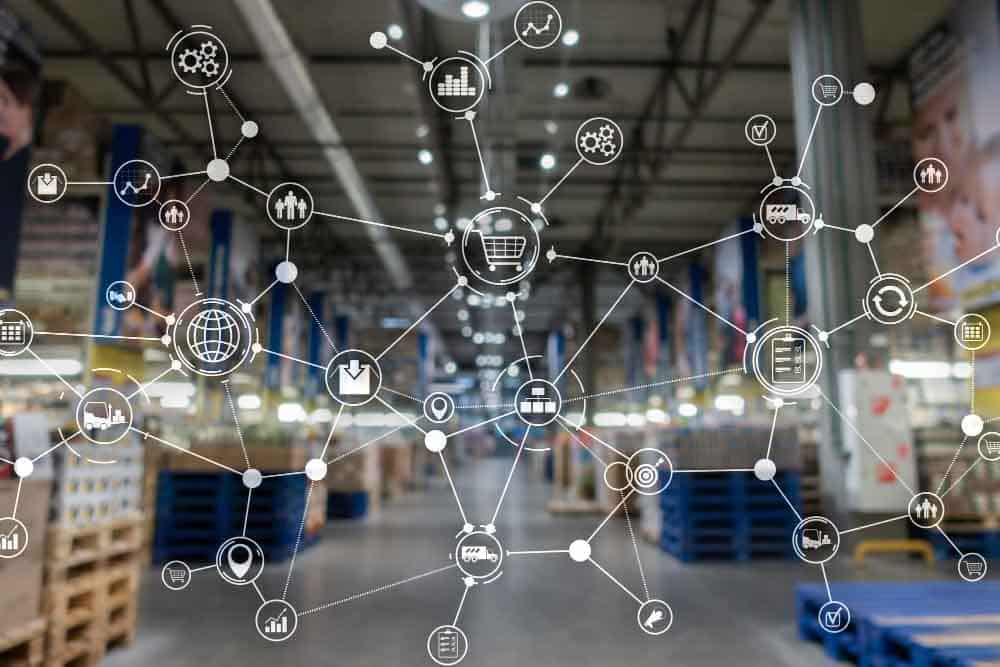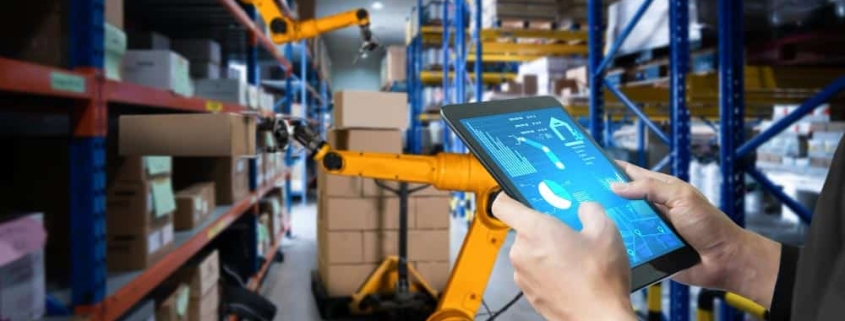This is how the integration of automation in the supply chain works
Supply chains have evolved over time to meet the changing needs of businesses and consumers. At its inception, supply chains were simple and local, with limited regional production and distribution. However, with increasing globalization and the expansion of international trade, supply chains have become increasingly complex and global.
Supply chains play a critical role in the global economy, and their importance lies in several key aspects. An efficient and well-managed supply chain enables profitable production, efficient product distribution, and timely delivery to customers. At the same time, proper management of supply chains can generate competitive advantages for companies by meeting customer expectations in terms of quality, availability, and service.
Currently, and thanks to the benefits of technological advances such as automation, supply chains span multiple countries and continents, involving suppliers, manufacturers, distributors, and retailers in an interconnected network. The integration of technology and automation has been key in this evolution, allowing greater efficiency and coordination at all stages of the chain. From the sourcing of raw materials to the final delivery to the customer, today’s supply chains are characterized by greater visibility, traceability and agility.
The integration of automation in the supply chain plays a fundamental role in achieving efficiency, precision and agility in logistics operations. In the digital age, where competition is intense and customers demand fast and accurate deliveries, automation has become an essential tool to optimize the supply chain. By implementing automation in the supply chain, new technologies are taken advantage of that improve efficiency in the production, storage and distribution of merchandise, among other logistics processes.
These technologies, along with others that are still in the process of consolidation, such as the industrial internet of things, robotics, artificial intelligence or the metaverse, are part of the supply chain in Industry 4.0. Supply chain 4.0 is based on the application of advanced technologies that allow greater interconnection, control and optimization of logistics operations, thus providing a faster and more precise response to current market demands.
Therefore, the supply chain ranges from the acquisition of raw materials to the delivery of the final product to the customer. Integrating automation at every stage of this process provides significant benefits that improve the efficiency and profitability of operations. In a highly competitive and demanding market, having a robust and agile supply chain thanks to automated systems becomes essential for business success and to maintain customer satisfaction.
Benefits of integrating automation in the supply chain

First, automation optimizes the flow of information throughout the supply chain. Through the use of computer systems and specialized software, data is shared and updated in real time, allowing for seamless communication and faster, more accurate decision-making. This reduces response times, minimizes errors, and improves visibility of the supply chain as a whole.
On the other hand, the automation of supply chains gives companies the opportunity to increase their presence in the markets. Comprehensive management covers the supply process, thus optimizing the organization of warehouses to meet demand, which guarantees maximum use of transport. These actions generate benefits in the medium and long term.
Automation also makes inventory management easier. Automated inventory control systems continuously monitor and record stock, allowing for more accurate planning and timely replenishment. This prevents product shortages and reduces excess inventory, resulting in significant cost savings and increased efficiencies in warehousing and distribution.
In the area of storage and distribution, automation plays a fundamental role. Automated material handling systems, such as conveyors and automated storage systems, optimize the flow of products within warehouses and distribution centers. These systems can accurately and efficiently classify, label, and track products sent, reducing errors and streamlining logistics operations.
The integration of automation in the supply chain also extends to order management and packaging. Automated order processing systems can quickly and accurately select and pack products, using algorithms and robots to maximize efficiency. This speeds up order processing time and ensures that products are delivered correctly and in perfect condition.
In addition to improving operational efficiency, the integration of automation in the supply chain also has a significant impact on accuracy and quality. Automated systems reduce human error and minimize the risks of product damage or loss. This translates into increased customer satisfaction as orders are delivered correctly and on time, strengthening the company’s reputation and building customer loyalty.
For example, Amazon, the global e-commerce giant, has achieved exemplary integration of automation into its supply chain. One of Amazon’s major innovations is its automated warehouse management system. This system uses autonomous robots for the movement and storage of products in the company’s warehouses. The robots communicate with each other and with the central inventory management system, optimizing the flow of products and minimizing delivery times. In addition, the integration of sensors and artificial vision technology allows robots to avoid obstacles and maintain safety in the work environment.
This automated approach has allowed Amazon to significantly increase its order processing and storage capacity. Robots can move efficiently, perform multiple tasks simultaneously, and quickly adapt to changes in demand. This has improved operational efficiency, reduced errors, and faster delivery time for products to customers.
In the digital age, where competition is fierce and customers demand fast and accurate deliveries, automation has become an essential tool for optimizing the supply chain and it will only be possible if we have the best professionals in the sector to revolutionize our businesses and industries.









